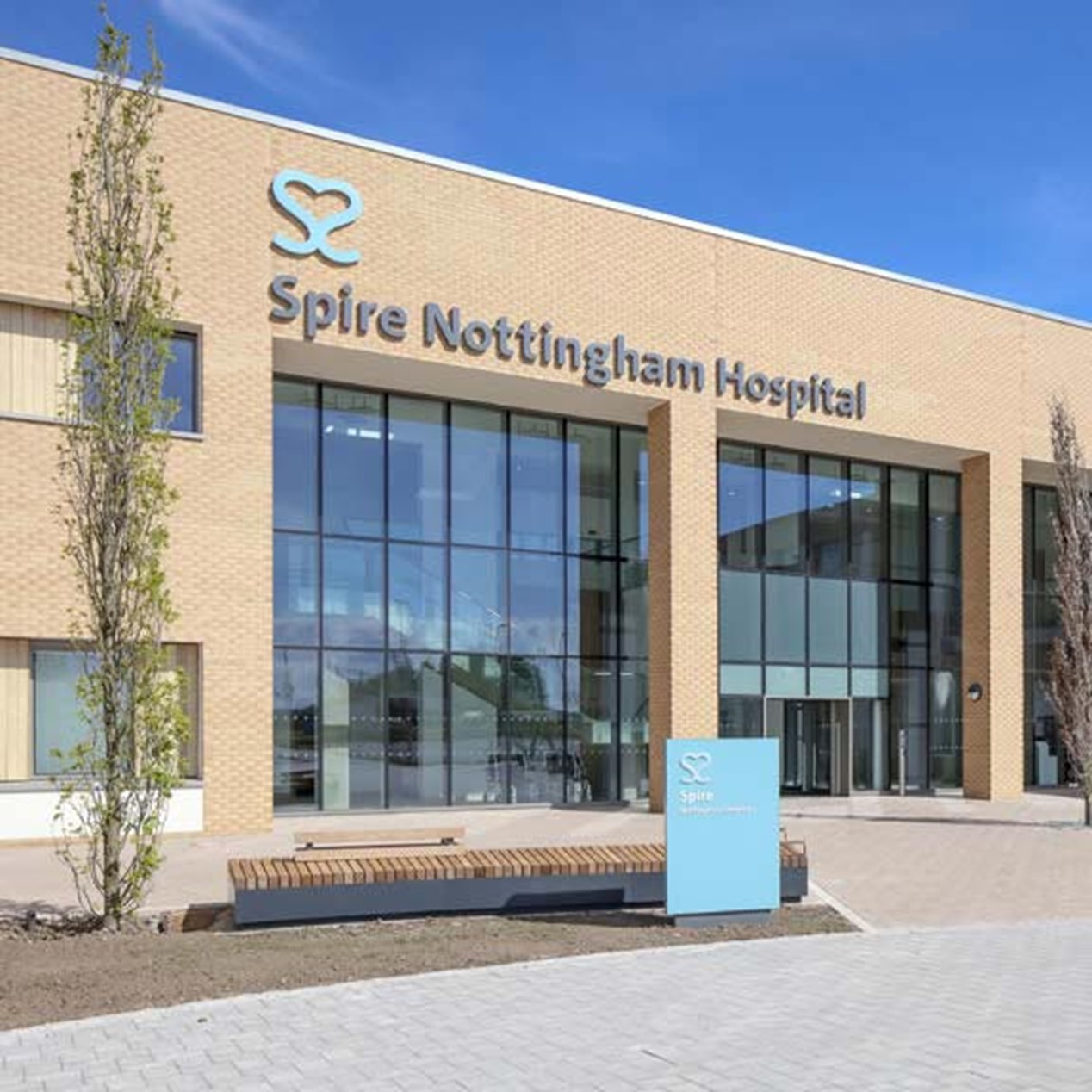A transoesophageal echocardiogram (TOE) is a heart scan that uses ultrasound (sound waves) to produce images of the heart. The test is painless and does not use radioactivity.
It involves swallowing a soft flexible tube as the pictures are taken via the gullet.
Why you might need it
A TOE allows your doctor to take extremely detailed images of your heart. A TOE is often used to look carefully at the valves and the structure of the heart.
The TOE will help the doctor decide on the best treatment for your heart.
Find a Spire hospital offering this treatment

Who will do it?
Our patients are at the heart of what we do and we want you to be in control of your care. To us, that means you can choose the consultant you want to see, and when you want. They'll be with you every step of the way.
All of our consultants are of the highest calibre and benefit from working in our modern, well-equipped hospitals.
Our consultants have high standards to meet, often holding specialist NHS posts and delivering expertise in complex sub-specialty surgeries. Many of our consultants have international reputations for their research in their specialised field.
Before your treatment
You will have a formal consultation with a healthcare professional. During this time you will be able to explain your medical history, symptoms and raise any concerns that you might have.
We will also discuss with you whether any further diagnostic tests, such as scans or blood tests, are needed. Any additional costs will be discussed before further tests are carried out.
Preparing for your treatment
We've tried to make your experience with us as easy and relaxed as possible.
For more information on visiting hours, our food, what to pack if you're staying with us, parking and all those other important practicalities, please visit our patient information pages.
Our dedicated team will also give you tailored advice to follow in the run up to your visit.
You must not eat or drink anything for 6 hours before the test.
Normal medications should be taken on the morning of the TOE with a small sip of water. Please bring a copy of your prescription with you. If you are diabetic, please inform the nurses as soon as you arrive at the Day Care unit. If you are on Warfarin, your INR should have been checked within the preceding seven days.
Please inform us if you have any problems with swallowing, or if you have had any bleeding from your stomach. This may prevent the TOE from being performed.
The procedure
This procedure is performed as a day-case.
Three people will usually be present to perform the scan: a doctor, a sonographer and an assistant.
You will have stickers attached, so that your heart rate can be monitored throughout the scan. You will also have your blood pressure checked, and be given oxygen. You will be able to breathe completely normally throughout the test.
You will have some local anaesthetic sprayed on the back of your throat and then asked to lay on your left hand side. A drip will be placed in your arm. If you have dentures, you will be asked to remove them before the test. Often, you will then be given some sedation to relax you, although you will not be completely asleep.
You will then be asked to swallow the TOE probe. This part may cause discomfort, but is not painful. Recorded images of the heart will then be obtained. The test will take about 20 minutes.
At the end of the procedure, the tube will be removed, your blood pressure will be checked again, and you will allowed a short period of recovery.
Aftercare
After the TOE, you will be monitored for a short period of recovery. When you are fully alert and the sensation has returned to your throat, you will be allowed a drink.
You will be allowed home when you are fully awake, usually 2-3 hours after the procedure. Before you are discharged, the results of the scan will be explained to you.
If you have been given sedation, you should NOT drive or operate heavy machinery for the remainder of the day. You should be accompanied home by a friend or relative. You can go back to normal activities the following day.
Are there any risks in having the TOE?
The TOE scan is extremely safe, but there are some risks you need to be aware of.
It is not uncommon to have a sore throat after the procedure. This may last for a day or two.
Occasionally the throat may bruise or bleed slightly.
There is a small chance of inhaling stomach contents during the procedure. This is why it is important that you do NOT eat or drink anything for six hours before the procedure.
There is an extremely small risk (less than 1 in 10,000) of damaging or tearing the gullet. In extreme circumstances this may require an operation to repair the damage.
Your doctor would not be requesting the TOE unless he or she felt it would help in deciding on the best treatment for your heart. If you have any questions regarding the TOE please contact your doctor’s secretary, or this unit.
Why choose Spire?
We are committed to delivering excellent individual care and customer service across our network of hospitals, clinics and specialist care centres around the UK. Our dedicated and highly trained team aim to achieve consistently excellent results. For us it's more than just treating patients, it's about looking after people.
Important to note
The treatment described on this page may be adapted to meet your individual needs, so it's important to follow your healthcare professional's advice and raise any questions that you may have with them.

